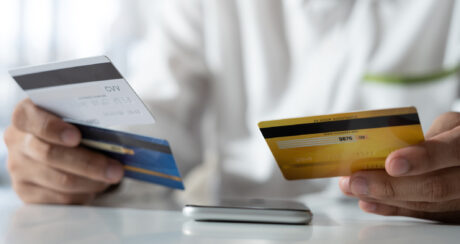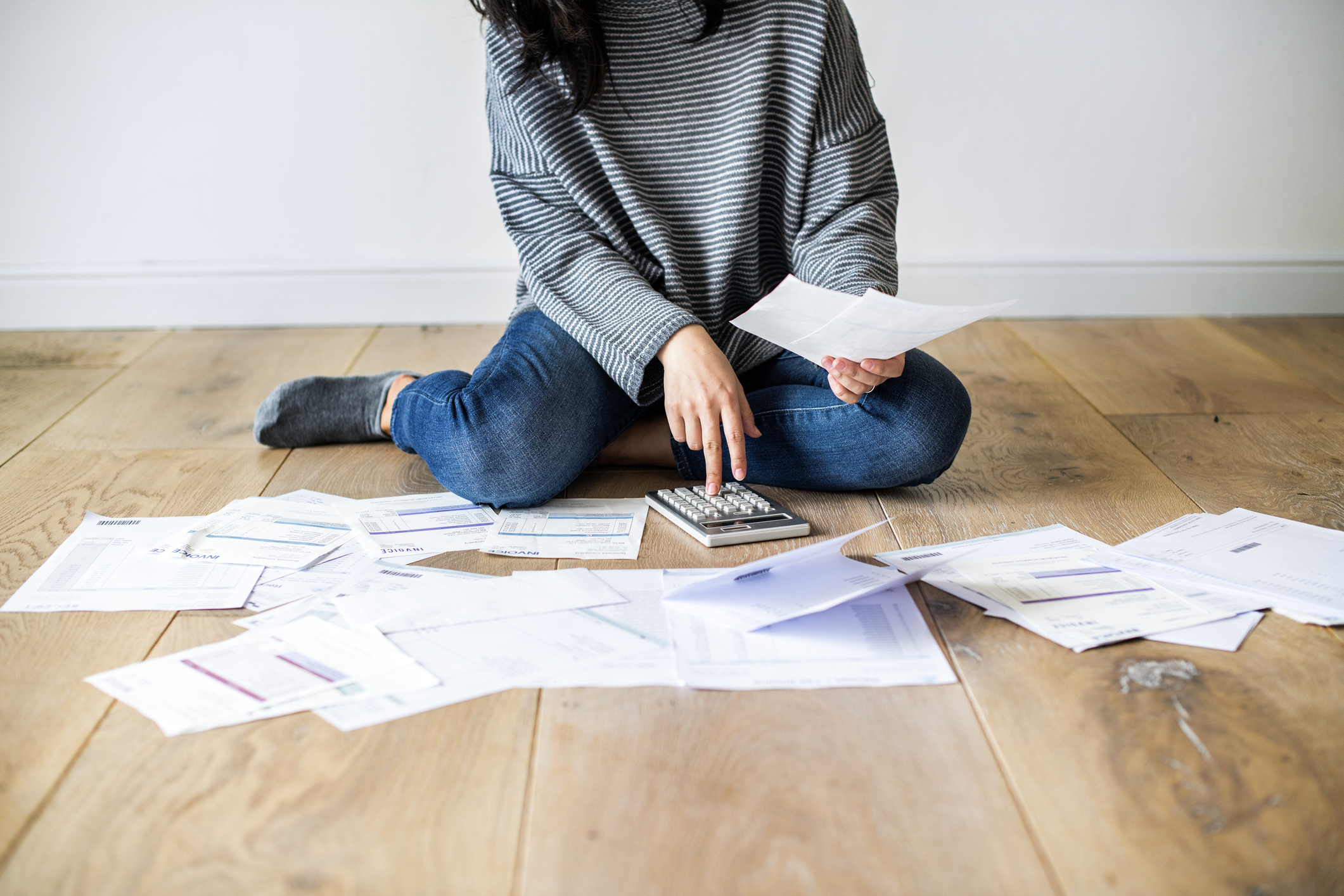If you’re in debt, you’re not alone. Many Aussies have debt too. In fact, Australians have the fifth highest level of household debt compared to the average household disposable income in the world.
Let’s preface something important: while there are better types of debt than others, your relationship with debt matters. Paying off debt can be a skill you carry for life. It’s all about your perspective.
What is debt?
Debt is the money or credit you owe to a bank, other financial institution, or a person (if you borrow money through family or a friend). It’s always better to pay off debt quickly to avoid interest and fees.
You can have credit but not be in debt. For example, you might have a $5,000 line of credit but not use it. Therefore, you don’t have debt until you use your credit card to transact.
Used strategically, debt is a tool that gives short-term flexibility and a stronger long-term financial position. Debt can help you achieve your greatest financial goals — going to university, buying a house, starting a business, travelling the world — but only if used responsibly.
Debt is a decision-maker
Your debt tells a story about your ability to handle money. Remember, debt itself isn’t ‘bad’ — especially if you pay it off on time and have consistent income, savings and assets.
Debt does impact your credit score, both positively and negatively, which paints another picture of your overall creditworthiness. A positive track record with debt opens doors, creates financial flexibility and helps you access those big ‘life’ purchases, like the car, home or new business.
Common types of debts in Australia
Mortgages
In 2021, there were 6.2 million households with homeowners, making home loans and mortgages the largest debt. The mortgage is the difference between the initial deposit and the total house price.
Credit cards
This is a common type of debt, with more than 13 million credit cards in Australia.
Car loans
Approximately 2.7 million Australians have a car loan. A new car is a large expense, so it’s common for people to make a partial payment and enter a loan. The average car loan is four years and operates as a personal loan.
Personal loans
Banks and financial institutions provide loans for people who need more than a standard credit card. Personal loans can be used to pay for a trip or an emergency or to start a business.
HELP loan
About 2.9 million people have student loan (HELP) debt, such as FEE-HELP or HECS-HELP. The Higher Education Loan Program (HELP) is tied to inflation, which only increases.
Tax (ATO) debt
While most ATO debt is owed by small-to-medium-sized businesses, individuals who cannot pay their bills can enter a payment plan. During the pandemic, lodgements and payments rules were relaxed to ease the pressure on Australians. More individuals took advantage of this support.
Evaluate your debt holistically
Get into the right money mindset and think of your finances in a holistic way. Debt is just one part that contributes to your financial health. Each financial pillar deserves your attention. Spend time understanding, reviewing and tracking your monthly expenses to know all your numbers, such as:
- Your monthly earnings
- How you spend and your cash flow patterns
- How much you save and its percentage of your income
- What you invest in
- How much debt you have and the speed at which you’re repaying it.
Your numbers will change monthly with your cash flow, so dedicate one or two hours every month to review your finances and budget.
Debt is also relative. What’s important is your debt-to-income ratio. This figure compares your total debt to your overall income. To find your ratio, weigh up your recurring monthly debt and expenses against your income, savings and assets. If you earn $60,000 per year and your credit card debt is $2,000, you’re in a good position with a ratio of 3 per cent. But that same $60,000 salary and $12,000 of debt is a different story — with a 20 per cent debt-to-income ratio, you won’t have much wiggle room in your budget.
Get interested in your interest rate
Whether it’s a personal loan, a car lease, a home loan or your HECS debt, you need to know how (and how much) the interest is on any debt you pay. There’s always room for renegotiation or shopping around, especially with consumer products.
Similarly, the best type of credit card for you depends on who you bank with, what products they offer, the terms and conditions, and your history as a customer. Some people prefer lower fees than interest rates. Other consumers are happy to pay a higher interest rate to access rewards points. Some may benefit from an interest-free credit card. Do your research and know what’s most important to you in a credit card.
» MORE: Understanding principal and interest for a home loan
How to get rid of debt? Use the domino method
As Aussie’s finance guru, The Barefoot Investor, says: ‘Domino your debts.’
First, list all your debts and put them in order (smallest to biggest). Next, speak with each lender and negotiate lower rates or fees.
Then, with the best possible outcome for each debt, focus on the smallest one on your list. Pay that off first and move down the list. Make sure you also pay the minimum for each debt to avoid fees or marks on your credit score.
As you work through the list — knocking each debt down like a domino — you’ll grow your available money to pay off your next debt. The fewer minimum repayments you have, the more resources you can dedicate to your priority debt.
You’ll feel liberation and momentum once you see that first domino fall (the smallest debt). Don’t forget to celebrate each win as you get out of debt. You’re not just paying down debt. You’ll be wiser and more experienced in navigating your future finances.
DIVE EVEN DEEPER

Debt Consolidation: What It Is and How It Works
Debt consolidation rolls multiple debts into a single payment. It can be a good idea if you qualify for a low enough interest rate.

Debt Collectors: What To Do If One Contacts You
A debt collector is a person or company that attempts to recover money owed. Know your rights when it comes to legal debt collection.

Financial Counselling: What It Is And How It Can Help
Financial counselling can help improve your relationship with money by helping you understand how it is influenced by social, psychological, familial, economic, and emotional forces.

Why Consolidate Credit Card Debt?
When you consolidate credit card debt, you combine all your existing credit card debt into one monthly payment with a lower interest rate.

